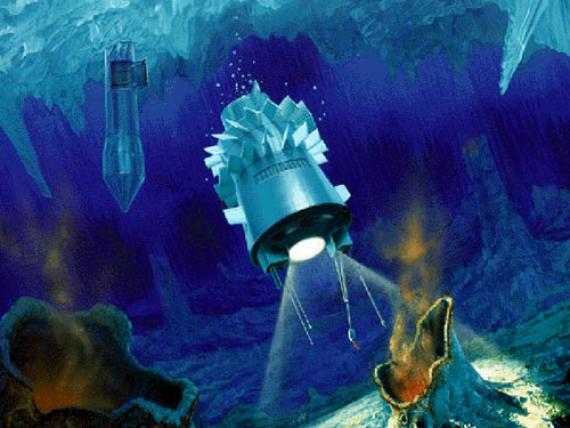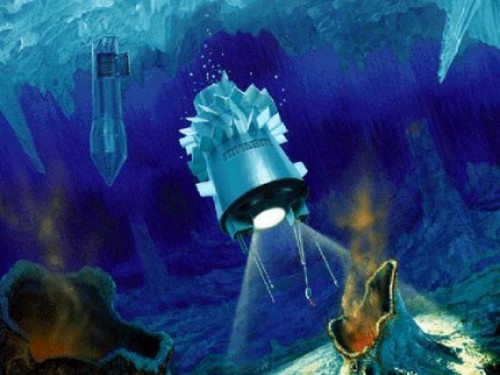Antarctica’s lake Vostok is a prehistoric frozen wonderland. What lays dormant in the frozen abyss has been there for 65 million years. Way back when strange marsupials frolicked the hot and humid Antarctic rainforest.
Today, Lake Vostok is a massive ice cube that’s been under the scientific community’s radar for quite some time. With recent expeditions and deep drilling, a recent report from the Vostok station confirms that the upper layer of the lake is lifeless. Which comes to no surprise. Researchers are hopeful that once they reach the bottom sediment, they will uncover the fossil remains of the ancient Antarctic.
Reminds me of that one X-files episode. Hmm…Maybe we should rethink this?
Full source: Nature.com
Vostok’s microbes elusive in first measurements of surface water
Posted on behalf of Naomi Lubick.
A first analysis of the ice that froze onto the drillbit used in last February’s landmark drilling to a pristine Antarctic lake shows no native microbes came up with the lake water, according to Sergey Bulat of Petersburg Nuclear Physics Institute (Russia). The very uppermost layer of Lake Vostok appears to be “lifeless” so far, says Bulat, but that doesn’t mean the rest of it is.
Bulat reported what he calls his team’s “very preliminary results” on Tuesday, at the 12th European Workshop on Astrobiology (ENEA 2012), in Stockholm, Sweden, at the AlbaNova University Center.
Bulat and his colleagues counted the microbes present in the ice sample and checked their genetic makeup to figure out the phylotypes. They counted fewer than 10 microbes/ml — about the same magnitude they would expect to find in the background in their clean room. And three of the four phylotypes they identified matched contaminants from the drilling oil, with the fourth unknown but also most likely from the lubricant.
Bulat hopes to get clean samples from the ice frozen in the borehole below where the drill bit stopped. That won’t be until next May (2013), if all goes well after the next Russian drilling expedition in December-January. Even if the top of the lake ends up being empty, Bulat suspects microbes will come from lower water depths, or from sediment samples at the bottom of the lake.
Lake Vostok is a stand-in for icy bodies that might harbor life, like Jupiter’s moon Europa. Gerda Horneck of the German Aerospace Center (DLR) said that any result from Lake Vostok is important for astrobiology, and the search for extremophiles that could give hints of what life could be like elsewhere. “Let’s see what comes out next round,” she told me at the end of the meeting on Wednesday.
1 comment





